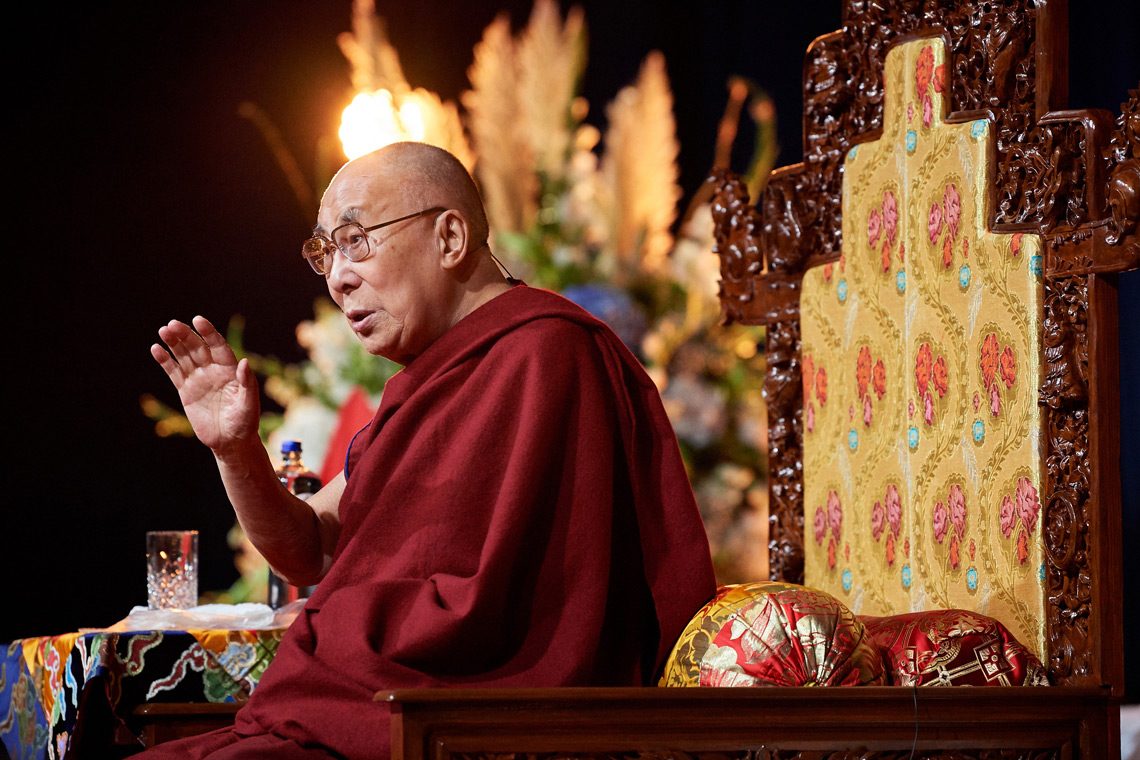His Holiness the Dalai Lama met four of the twelve individuals who have presented written testimonies alleging physical, sexual, and psychological abuse by prominent Tibetan Buddhist teachers in the West. The meeting took place in Rotterdam on September 14, the first day of His Holiness’s four-day tour of the Netherlands.
Inspired by recent anti-sexual assault movements, the group of twelve students from Austria, Australia, Belgium, France, the Netherlands and the United States launched an online petition called #MeTooGuru on September 10, in which they asked for the meeting with His Holiness to share their experiences, and to discuss his response to their ideas for follow-up action.

The meeting comes after several scandals involving at least five Tibetan Buddhist teachers including Rigdzin Namkha Rinpoche of the Swiss-based Rigdzin Community; Tulku Lobsang of the Nangten Menlang Centre in Vienna, Austria; Sogyal Rinpoche of the Rigpa organisation; Sakyong Mipham Rinpoche of the Shambhala Buddhist Community and Robert Spatz, a Belgian citizen also called Lama Ogyen Kunzang Dorje, began to surface over the course of recent months.
Just one week prior to the meeting, Rigpa – an international Buddhist organisation active in the West – apologised for the alleged abuse carried out by its founder Sogyal Lakar after an independent investigation found that he had subjected followers to “serious physical, sexual, and emotional abuse.” Sogyal, who is also known as Sogyal Rinpoche, is best known for his 1994 book,The Tibetan Book of Living and Dying, which sold over three million copies. Sogyal has since retired in the wake of the scandal and the Buddhist Union of France has suspended Rigpa’s membership.
Similarly, Sakyong Mipham Rinpoche, leader of the Canada-based Shambhala Buddhist community – an organisation with more than 200 meditation centres globally – has stepped down from administrative and teaching responsibilities while claims of sexual assault are investigated. Nine members of Shambhala’s highest leadership body have since resigned, and the organisation has announced a change in the way it handles reports of sexual assault allegations as initial reports have suggested a possible “pattern of behaviour.”
Until recently, Tibetan Buddhism appeared to be relatively free of these types of scandals that have continuously plagued other religious institutions, including the Catholic Church. Nonetheless, recent investigations suggest that issues were long present within certain organisations. Although some rumours had been circulating, previous lawsuits were settled out of court, and the abuse was said to have continued unabated.
Additionally, recent investigations suggest that senior members of these organisations did have knowledge of some of the issues, but failed to address them, leaving others at risk. As a result, victims have started coming forward publicly stating that “long-simmering issues… can no longer be ignored or denied.”
Although His Holiness has not commented publicly on the meeting thus far, some are hopeful that he will use his influence to help make a meaningful impact. Ricardo Mendes, who said he was physically abused while raised in a Buddhist sect in Belgium, stated that he was pleased the Dalai Lama appeared moved by the accounts they shared. “He was like: OK, now I have maybe the material. I have real papers, real stories of real people that I can use to point fingers in the Buddhist landscape and say ‘This guy, this guy, this guy are behaving this way, and you should not follow them, and this is not Tibetan Buddhism.’”
Unlike those perpetuating the abuse, who allegedly grew upset when students questioned their methods, His Holiness the Dalai Lama regularly encourages Buddhist practitioners to question their gurus: “If you investigate and it’s not proper, then you should not follow the lama’s teaching. Even Dalai Lama’s teaching; if you find some contradiction you should not follow my teaching.”
Furthermore, His Holiness has expressed support for those who are coming forward. He has previously stated that where abusive teachers may not pay heed to Buddhist teachings on ethical behaviour, they will likely take notice if their face appears in the media. Thus, he encourages victims to speak out about their experiences:
“Many years ago in Dharamshala at a Western [Buddhist] Teachers Conference, some Western Buddhist teachers mentioned some Zen masters and Tibetan Buddhist masters had created a very bad impression among people. Then I told them then; these people do not follow Buddha’s advice, Buddha’s teaching… So, the only thing is to make it public, through newspapers, through the radio. Make it public!”




 Print
Print Email
Email